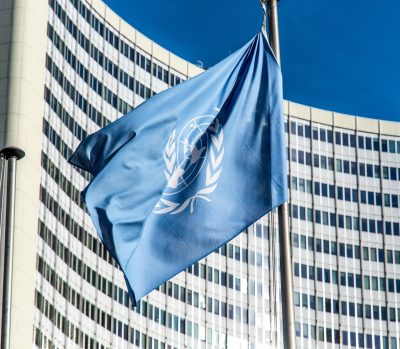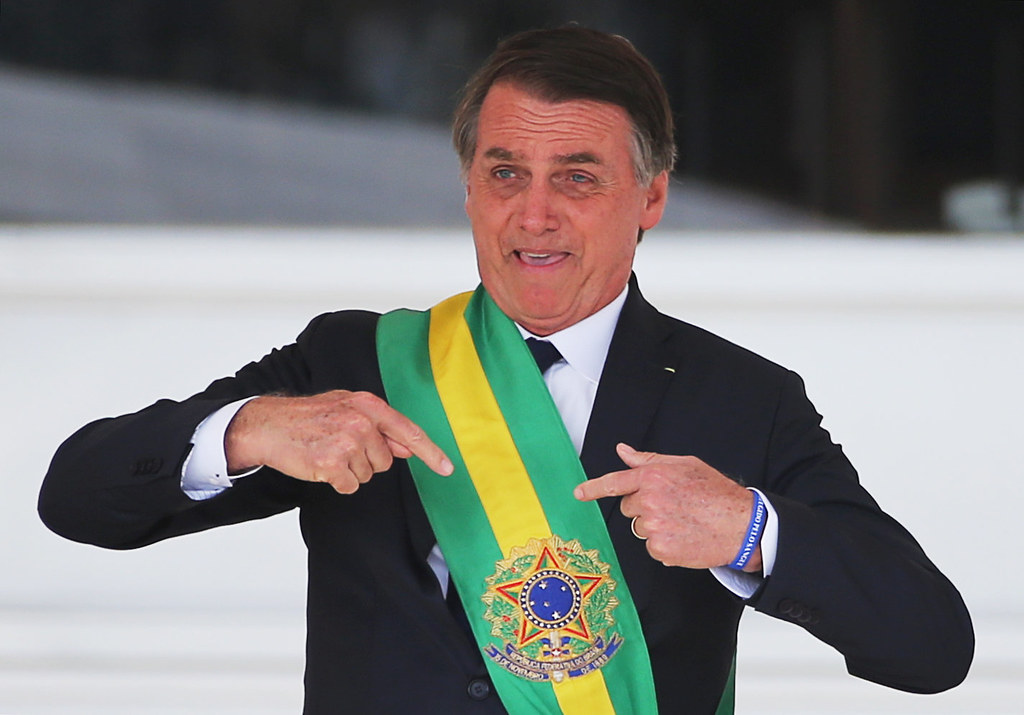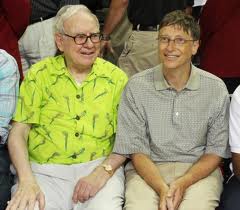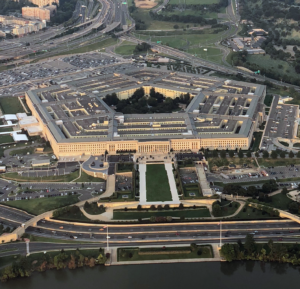The Future of “Global Governance” and The “Earth Congress”. Transform the United Nations

All Global Research articles can be read in 51 languages by activating the “Translate Website” drop down menu on the top banner of our home page (Desktop version).
To receive Global Research’s Daily Newsletter (selected articles), click here.
Follow us on Instagram and Twitter and subscribe to our Telegram Channel. Feel free to repost and share widely Global Research articles.
***
We have been given a hopeless choice, and it is no accident.
The world is being pulled together by hidden forces, by the transfer of money from one bank to another, by the transfer of information, photographs and texts exchanged between media monopolies, banks, and the public relations and consulting firms that service billionaires, making their cynical ploys appear to be humanitarianism.
The world is merging as wealth and power concentrate in the hands of the few. The information fed to working people is increasingly banal and trivial. If we want to respond to international issues, we are forced to work with these new powers, to bow before these false gods, the self-appointed lords of global affairs.
 We are being trampled by ruthless globalism that controls all money, produces all the things we need to live and even tries to control our minds via postings on social networks that reduce us to instinctive animals responding to suggestive images.
We are being trampled by ruthless globalism that controls all money, produces all the things we need to live and even tries to control our minds via postings on social networks that reduce us to instinctive animals responding to suggestive images.
But the anti-globalist alternative presented to us consists of racist, isolationist groups, groups that use violence and deeply disturbing rhetoric. These groups are increasingly powerful, but they are not interested in the truth. They make equally misleading appeals to the emotions of the frustrated worker.
These groups do not want reform of global institutions, but rather their complete dismemberment. Such actions can only empower multinational corporations further. They do not offer any solutions to climate change or to the domination of society by technology ― in most cases they ignore these threats entirely.
Or we can turn to the global institutions with visionary goals like the United Nations, or the World Health Organization, for guidance.
I am moved when I read the inspiring words of the UNESCO Constitution (United Nations Educational Scientific and Cultural Organization):
“That since wars begin in the minds of men, it is in the minds of men that the defenses of peace must be constructed.”
 But although these internationalist institutions like UNESCO retain a few smithereens? of their noble past, they have been so infested with money from corporations, direct, or indirect, that their priorities are dictated by billionaires promoting their own money-making agendas under the false flag of charity.
But although these internationalist institutions like UNESCO retain a few smithereens? of their noble past, they have been so infested with money from corporations, direct, or indirect, that their priorities are dictated by billionaires promoting their own money-making agendas under the false flag of charity.
Given this impossible choice, most of us who have the time, the education and the incentive to try to respond to globalization do not know where to turn. Many have simply given up. The investment banks could not be happier with this result.
There is a critical difference between the drive for globalization dominating business and financial activities and the inspiring vision of internationalism, the coming together of the citizens of the Earth for informed and ethical governance, that led to the founding of the United Nations and other international organizations intended to solve mankind’s common problems.
Globalization brings together people, often extremely bright, to pursue profit through trade and technological development. The assumption in globalization is that the decisions of banks and multinational corporations will help ordinary people and that growth and consumption will bring happiness to everyone. But businesses can only measure success in profits and although they may use some of those profits to help out poor people, their motivation is exploitative.
We need to return to the tradition of brave and fearless internationalism and forge an alternative to globalism that is not isolationist nor grounded in ethnic identity.
 Think about the current destruction of the Amazon jungles by the regime of Brazilian President Jair Bolsonaro. The current actions, now ignored by the media, threaten to end civilization and to condemn our youth to a barren planet. It seems that we cannot do anything. Our international institutions are powerless.
Think about the current destruction of the Amazon jungles by the regime of Brazilian President Jair Bolsonaro. The current actions, now ignored by the media, threaten to end civilization and to condemn our youth to a barren planet. It seems that we cannot do anything. Our international institutions are powerless.
The Amazon is being cut down and, in its place, the massive corporation Amazon extends its tendrils to seize control of the global economy. The jungle that purifies our air is slashed and burned and a digital jungle that chokes our freedom flourishes.
We need a system that can identify global issues and coordinate a response at the local level.
- The United Nations can make statements.
- Famed intellectuals can write editorials.
- NGOs can hold protests and let citizens sign petitions.
But there is no coordinated effort to block the criminal drive to destroy our future.
A call for “regime change” on a global scale is an entirely appropriate goal for citizens to pursue. I am not talking about the corporate-led regime-change scams that abound.
Do not forget the thousands of youth from around the world who went to Spain in the 1930s to fight against Franco’s fascist regime. There was no shame in the word “regime change” in that context, nor should there have been.
Nor was there any shame in the use of force to combat the fascistic governments that were set on slaughtering the majority of humanity in a ruthless quest for “living space.” There really was no choice.
 We cannot ignore the pressing need to transform the governance of our Earth and that will require more than just signing petitions. It will require us to reinvent global governance, not as a tool for investment bankers and wealthy philanthropists, but as a means to address the threat of ecological collapse, militarism and the massive concentration of wealth.
We cannot ignore the pressing need to transform the governance of our Earth and that will require more than just signing petitions. It will require us to reinvent global governance, not as a tool for investment bankers and wealthy philanthropists, but as a means to address the threat of ecological collapse, militarism and the massive concentration of wealth.
We need a vision for a future that moves beyond suicidal consumption-driven economics and a paranoid militarized society, a vision that will inspire us to risk everything as we fight against hidden forces tearing our world apart.
The United Nations did not suddenly spring into being.
A small group of intellectuals and activists risked their lives in all corners of the Earth to fight against totalitarianism, and to advocate for internationalism and for world peace.
 Eventually, they got support from the governments of Russia, China, the United States and Britain, and other exiled governments. There were profound compromises required for that support. But the dream of not only defeating Fascists, but also establishing true international cooperation, did not die.
Eventually, they got support from the governments of Russia, China, the United States and Britain, and other exiled governments. There were profound compromises required for that support. But the dream of not only defeating Fascists, but also establishing true international cooperation, did not die.
The roots of the United Nations can be traced back to the Hague Peace Conventions of 1899, 1907 and 1914 (the final one disrupted by the outbreak of World War I). Those peace conventions codified the international law, proposed and implemented global regimes for disarmament and promulgated humanitarian laws for the conduct of diplomacy, trade and war that included punishment for war crimes.
The Hague Peace Conventions led to the formation of the League of Nations after World War I. For the first time, the Earth had transparent global governance to counter global governance driven by multinational corporations. The League of Nations produced such achievements as the Kellogg―Briand Pact of 1928, setting up a framework to end war. The achievements of the League of Nations, and other international movements, laid the foundations for the United Nations.
Sadly, the United States, flushed with confidence after its victory in the Second World War, could not resist inheriting the legacy of exploitative global governance: the spoils of the British Empire.
American financial elites with deep ties to London ultimately suppressed Americans still committed to the struggle against fascism and the United States turned the Soviet Union into a threat, rather than a partner for world peace. The Cold War was spawned and the mandate of the United Nations was not realized.
Yet, even after the United Nations’ budget was stripped to the bone during the George W. Bush administration, even as American policy drifted further from international law under the Obama and Trump administrations, the United Nations remains a vital place where citizens can appeal for justice and for guidance.
However, the United Nations and affiliated global institutions have abandoned much of their founding ideals. They are run by retired bureaucrats in cushy jobs, and the funding comes (directly and indirectly) from multinational corporations and billionaires in a blatant conflict of interest.
Climate change and the drive for war, the exponential evolution of technology and its negative impact on human agency are massive civilizational challenges that call out for true global governance. Yet the ability of citizens of the Earth to work together for common goals remains intentionally limited.
 The well-fed experts at the United Nations offices who chase after funding from foundations set up by the wealthy are completely unprepared for the real dangers of economic, ecological and systemic collapse. The queer opinions on climate, economics, health and geopolitics of billionaires like Bill Gates, Michael Bloomberg and Warren Buffett are valued over those of ethical experts, or ordinary citizens.
The well-fed experts at the United Nations offices who chase after funding from foundations set up by the wealthy are completely unprepared for the real dangers of economic, ecological and systemic collapse. The queer opinions on climate, economics, health and geopolitics of billionaires like Bill Gates, Michael Bloomberg and Warren Buffett are valued over those of ethical experts, or ordinary citizens.
Warren Buffett and Bill Gates, September 2010
Nor is the problem of globalism simply one of billionaires. Networks connect tens of thousands of supercomputers around the world that purr softly as they calculate how to maximize profit every day, every minute and every second. Those supercomputers make the ultimate decisions for BlackRock and Bank of America, assessing the monetary value of the entire Earth and extracting profit in perfect accord with the algorithms assigned without ethical qualms. Those supercomputers are becoming our default global government.
And if social networks, videos and games remap the neural networks in our brains, encouraging dopamine-driven short-term thinking, the computers will take over.
Don’t reform the United Nations; transform the United Nations
The United States never regained the commitment to the United Nations it had under President Franklin Roosevelt. My administration will place the United Nations at the center of diplomacy, economics and security, but it will be a different United Nations than the shell that we see today. It will be an entity committed to the common good that does not scramble for the scraps tossed to it by the rich and powerful.
The attacks from the right on global governance (especially the United Nations) are often based on fact, but the intentions are not noble. The hidden powers wish to privatize what little remains of a global system that has played a vital, if hobbled, role in establishing international law, regulations and promoting a scientific response to international threats.
Our dangerous and unstable world demands from us a global response that goes further. “Global” does not refer to shared Facebook postings, but rather to a coordinated international effort by committed citizens who are at least as well organized as the bankers and the super-rich that we are up against.
The world is excessively integrated in terms of finance, manufacturing, distribution and consumption for profit, but we remain complete strangers when it comes to collaboration between ethical intellectuals and citizens groups around the world.
The Earth Congress
The current situation is so serious that presenting a laundry list of piecemeal reforms will not do. What we need is a massive structural transformation, not a progressive adjustment, that will change the function of the United Nations.
We must make the United Nations a bicameral representative government, vaguely akin to the Congress, so that it no longer represents only nation states (which have been torn apart by global finance), but also represents all citizens in a democratic manner.
Such a move will give the United Nations back the mandate it had in 1942.
The current United Nations Assembly will serve as the upper house, the equivalent of the Senate. This upper house, retaining the title “United Nations,” will offer each nation a single representative.
The current Security Council, however, will be replaced with a speaker elected by all members of the United Nations, who will work together with permanent and ad hoc committees to address economic, security, welfare and environmental issues.
The authority of global governance, however, will be transferred to a new body that will serve as the equivalent of a lower house, or a “House of Representatives.” The analogy is limited in that this assembly will play the central role.
This legislature, referred to here as the “Earth Congress,” will represent the needs and the concerns of the citizens of Earth at the local level and function as a global institution for the formulation and implementation of policies for the entire world.
The Earth Congress will carry out the global governance function that is now monopolized by investment banks and multinational corporations that force their policies on nation states in secret.
The Earth Congress will be directly engaged with citizens around the world, responding to the concerns of local populations and also informing them about global issues in a scientific manner.
It will establish a global dialog for the formulation of policy for the entire world. The Earth Congress will be far more democratic in nature than most current nation states even as it spans the entire globe.
The first rule for global governance is that there is no role for private capital, no role for foundations and non-profits funded by the wealthy, in the discussion of the future of our Earth. We need scientific analysis based on rigorous and critical debate, we need deep ethical commitment by the members of the Earth Congress and we need the imagination and the creativity to find solutions in unexpected places.
The Earth Congress, funded by local contributions, will serve as a global organization that is capable of assessing the impact of corporate exploitation of resources and of definitively stopping such actions. It will be an organization capable of overriding the criminal actions taking place in Brazil today, or the drive for endless war by factions in the US Department of Defense.
 The Department of Defense is a perfect example of why we need true global governance. The department, with interests spread around the globe, controlled by generals and bureaucrats reporting to investment banks, is no longer part of the United States government and completely unaccountable. It carries out its own form of brutal, irresponsible global governance while hiding behind the title “government.”
The Department of Defense is a perfect example of why we need true global governance. The department, with interests spread around the globe, controlled by generals and bureaucrats reporting to investment banks, is no longer part of the United States government and completely unaccountable. It carries out its own form of brutal, irresponsible global governance while hiding behind the title “government.”
The Earth Congress will take full advantage of new technologies in a positive sense to facilitate the promotion of true cooperation around the world, whether dialogue between citizens, joint research between scientists, or cooperation on global issues between governments. But it will not have a central building where representatives gather, it will have its meeting places distributed around the world, coordinating the formulation and implementation of policy at the local level in a fair manner to meet the needs of humanity.
The Earth Congress will offer all citizens the chance to learn about the critical problems that we face and at the same time opportunities to participate in governance at the local level that will be reflected simultaneously in policy discussions at the global level.
The Earth Congress will take the lead in formulating strategies that allow citizens to work together with their peers around the world. Trade will no longer be limited to the import and export of goods monopolized by large corporations in a manner that greatly increases carbon emissions. Rather, a shared economy will be established in which communities around the world can find partners with like interests and coordinate their own micro-trade and micro-manufacturing cooperatives. Strict regulation will come from the bottom but will be applied internationally.
The Earth Congress, as the primary legislative body of the world, will determine representation according to the population of the entire planet.
Perhaps one representative can be assigned for every 50 million people (140 representatives for 7 billion people).
Some representation should be determined geographically (to represent regions like Africa or South America) but at the same time, there should be members of the Earth Congress who represent groups who are a significant part of the world’s population, but who are too few in number to have direct representation in local government, such as the extreme poor, or the handicapped.
The Earth Congress must insist on long-term (minimum of 30 years) solutions to the most critical issues facing the Earth and will encourage thoughtful and frank discussions that are not driven by a need for symbolic images, but by a demand for real solutions.
The Earth Congress will also provide long-term financing globally that will make solar and wind power, and organic farming readily affordable for citizens as part of a transformation of the Bretton Woods system.
For the Earth Congress, security will be defined as protecting the Earth and its inhabitants. The inhabitants are not only humans but also indigenous animal and plant life. It will be a basic assumption in global governance that no one owns the oceans, the air, or the land and that all modern concepts like “real estate” are not applicable to these shared resources. The Earth Congress will strictly regulate fishing, the pollution of the air and the water, the destruction of soil and of natural habitats. It will fund projects to restore the natural environment, often by removing the structures erected as part of the cult of “development.”
The Earth Congress will protect, on behalf of the population of the entire planet, the oceans, the Arctic and the Antarctic, and the atmosphere. Satellites and other devices that orbit the Earth will be strictly controlled to protect humanity and end the militarization of space. I will set out transparent and effective regulations to assure that the internet is powered entirely by renewable energy, is accessible to all and promotes an open intellectual discourse based on the scientific method rather than addictive games and pornography.
The interaction of experts in the Earth sciences, the environment, agriculture and technology with groups that are deeply engaged with ordinary citizens, and with representatives of local government, will create a positive cycle of inquiry, objective analysis, constructive proposals and transparent implementation that will usher in a new age of meaningful governance.
Reforming global governance and improving the US-China relationship
The future of global governance is critical to addressing the completely unnecessary conflicts between the United States and the People’s Republic of China being promoted for fun and profit. These two countries should be working together at the highest levels to respond to the challenges of the current day and to create true global governance for the people.
Instead, we are bombarded in the United States with calls for war with China, with campaigns to demonize China.
The two countries have been linked through systems of production and consumption, not through ties between people. We need decoupling in the sense that the people of both countries have their lives controlled increasingly by ruthless multinational banks. Exploitive patterns of economic interaction tying the two nations should be reformed.
But we need a deeper integration between the United States and China in terms of a concrete dialogue between the peoples of both nations about our shared future that will be implemented through honest and transparent governance for the sake of the Earth and future generations.
*
Note to readers: Please click the share buttons above or below. Follow us on Instagram and Twitter and subscribe to our Telegram Channel. Feel free to repost and share widely Global Research articles.
This article was originally published on Fear No Evil.
Emanuel Pastreich served as the president of the Asia Institute, a think tank with offices in Washington DC, Seoul, Tokyo and Hanoi. Pastreich also serves as director general of the Institute for Future Urban Environments.
Pastreich declared his candidacy for president of the United States as an independent in February, 2020.
He is a regular contributor to Global Research.
Featured image is from edgarwinkler / Pixabay

